Becoming a Certified Management Accountant opens doors to a broad range of prestigious, high-level jobs in accounting and finance. The journey to becoming a CMA requires a clear vision of your career goals. If you see yourself working in a financial management or management accounting role, you should pursue this certification. Although people who pursue CMA accounting are often high achievers who aim to hold leadership roles, the CMA Exam is a unique challenge and requires adequate preparation.
Whether you are just curious or actively on a path to becoming a CMA, this article will cover all of the basics. I have coached thousands of people through this very specific journey of preparing to pass the rigorous exam. The insight you get here can help you, too!
Read on to learn:
- What is the CMA Exam?
- CMA Exam Parts
- CMA Exam Pass Rate
- Registering for the CMA Exam
- Requirements to Sit for CMA Exam
- CMA Exam Dates
- CMA Exam Locations
- CMA Exam Cost
- Preparing for the CMA Exam
- FAQs
Originally published in 2020, this article was updated and republished on March 18, 2024.
What is the CMA Exam?
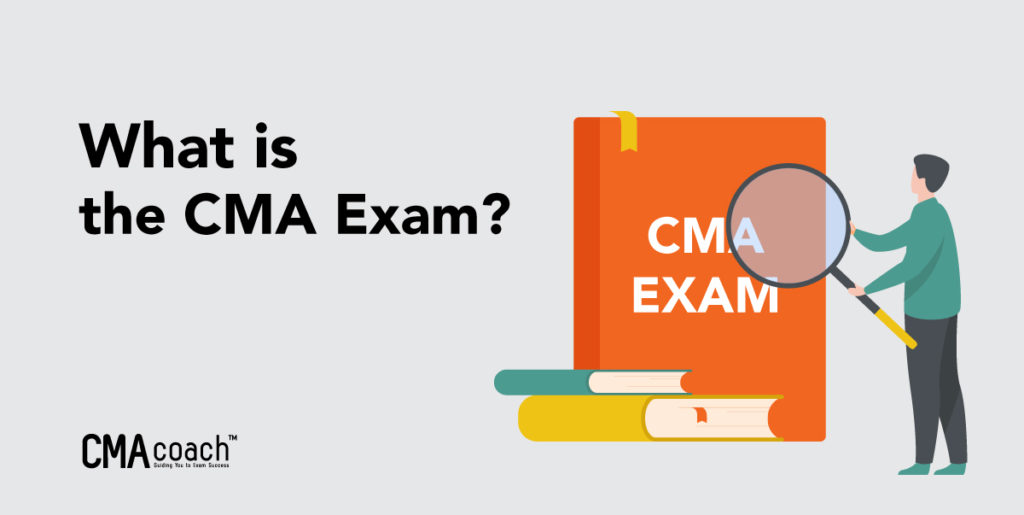
Everyone’s journey toward becoming a CMA starts with taking the exam. This is a two-part, professional certification exam that covers accounting, finance, and critical decision-making in business.
You must score 360 on each section of the test in order to pass. If you pass, you can go on to fulfill CMA work requirements and achieve your CMA certification.
The CMA exam is a notoriously difficult test, due both to the breadth and quantity of concepts.
Each part has its own challenges, designed to prepare you for what a CMA does. The only way to pass it is to study all the exam content.
CMA Exam Parts
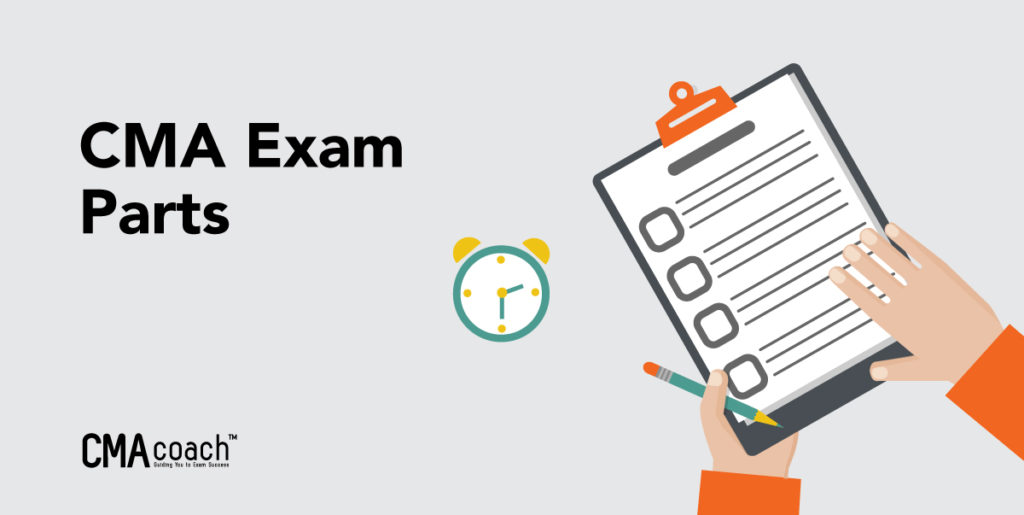
The two parts of the exam cover distinct topics but follow a similar format. In each part, there are 100 multiple choice questions and two essay questions. Test-takers are given three hours for the multiple-choice section and an hour total for the two essays.
CMA Exam Part 1
Part 1 is titled Financial Planning, Performance, and Analytics. The score breakdown for each topic is as follows:
- External financial reporting decision sessions is worth 15%
- Planning, budgeting and forecasting is worth 20%
- Performance management is worth 20%
- Cost management is worth 15%
- Internal controls is worth 15%
- Technology and analytics is worth 15%
Within each of these broad categories are important areas of study and skills to master. You can find more detail on the content covered in this deep dive on CMA Exam Part 1.
CMA Exam Part 2
Part 2 is entitled Strategic Financial Management. The score breakdown for each topic is as follows:
- Financial statement analysis is worth 20%
- Corporate finance is worth 20%
- Business Decision analysis is worth 25%
- Enterprise Risk management is worth 10%
- Capital Investment Decisions is worth 10%
- Professional ethics is worth 15%
Again, each of these topics will encompass a lot of additional material, and you can learn more in this in-depth look at Part 2 of the CMA Exam.
You can already tell that this challenging exam is going to require dedicated time and hard work. As you study for it, you should know that it will require your very best efforts to pass.
CMA Exam Pass Rate
Now that you know the rigorous study subjects, you may be asking, ‘Is the CMA exam hard?’ The answer is yes, the exam does require thorough preparation and a strategic study plan.
One of the easiest ways to illustrate how challenging the two parts are is to look at how many people pass.
The CMA exam pass rate is currently:
- 50% for part 1
- 50% for part 2
As a professional accounting exam, the CMA gets about half of the candidates. These test-takers include bright people who worked hard to prepare.
This shouldn’t serve as discouragement, but an urgent reminder to prepare well. The difficulty of this two-part exam means that you can’t rely on luck or natural intelligence. Preparation is everything.
Even as you buy a CMA preparatory program and throw yourself into test prep, you need to have a game plan that sequentially leads up to test day. I recommend following a CMA study guide to make sure you don’t miss any important steps.
Part of getting your ducks in a row is knowing how and when to register, so you can plan your studies on the right timeline.
Registering for the Exam
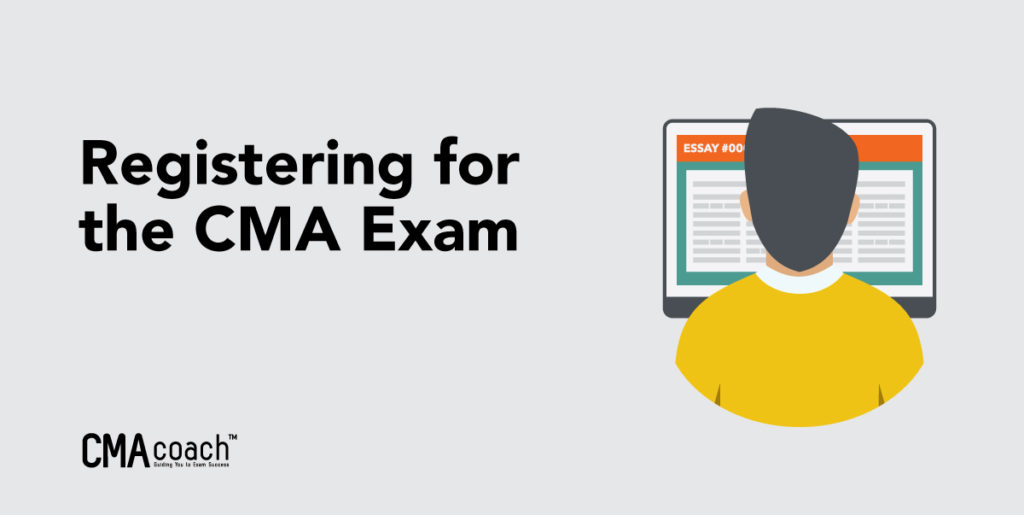
As you get started on a Certified Management Accounting certification, you’ll have to become an IMA member. The IMA is the Institute of Management Accountants, the governing body that offers the CMA certification and facilitates the administration of the exam itself.
Once you are a member of the IMA, you can register for and take the exam.
To register, you’ll pay a CMA entrance fee, which is nonrefundable. This is currently $300 for professional members and $225 for student or academic members. Once you’ve paid the fee, you can register online.
You’ll register for each part separately, choosing your exam date and location. Of course, it’s essential that you know and meet the exam requirements before moving this far forward.
Requirements to Sit for the Exam
To take the CMA exam, the only requirement is to be a member of the IMA. There are three membership options:
- Educator, or academic membership
- Professional membership
- Employer program
Each of these will give you access to over 300 global chapters and councils, a finance magazine, annual ethics events, courses to fulfill ongoing CPE requirements, and an online social media platform (myIMA Network). You must purchase your IMA membership before you can register.
Education and Experience Requirements
Candidates are required to possess at least a bachelor’s degree from an accredited university or college. Alternatively, a relevant professional certification may be considered acceptable. Additionally, all candidates must demonstrate a consecutive two-year relevant work experience, excluding internships or training positions. Candidates have up to 7 years after passing the two-part exam to fulfill these two requirements. If you need further clarification, feel free to ask.
Exam Dates
CMA exam dates are offered in three testing windows:
- Testing Window 1: January through February
- Testing Window 2: May through June
- Testing Window 3: September through October
Pick your month, date, and time and reverse-engineer your study plans from there.
Often, CMA candidates actually feel more concerned about the test score release dates than they are about the test date itself. While there is no exact date spelled out by the IMA, you’ll typically get your CMA score about six weeks after you take the test.
CMA Exam Locations
The CMA is a global exam. The tests are offered by the IMA at Prometric sites around the world.
In 2020, CMA tests were briefly suspended/postponed due to the COVID-19 pandemic. While most have reopened, it will be important to go online to the Prometric website to learn if your intended location has available CMA exam dates.
CMA Exam Cost
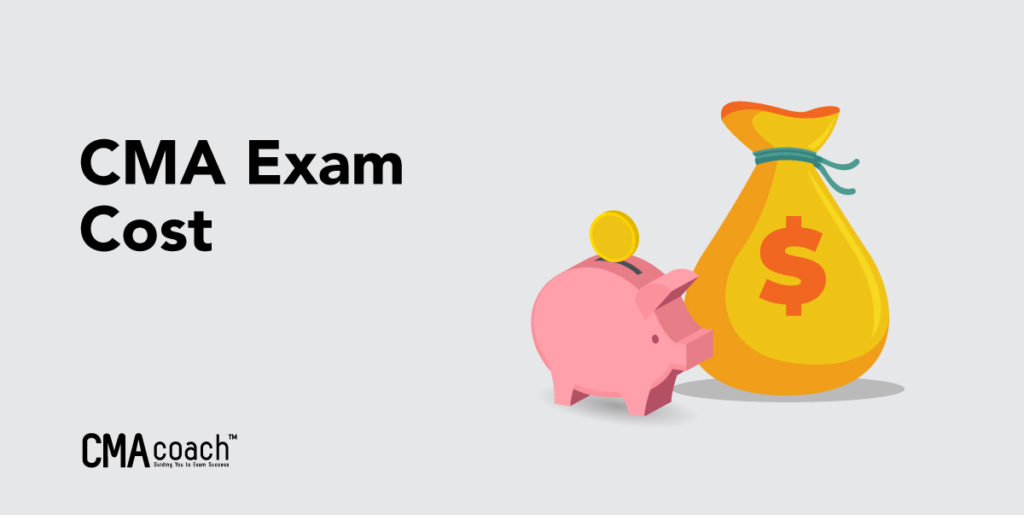
- CMA entrance fee for Professionals: $300 (non-refundable)
- CMA exam fees for Professionals: $495 for each part of the exam
- CMA entrance fee for Students: $225
- CMA exam fees for Students: $370 for each part of the exam
This brings the total cost for professionals up to about $1,290 and $965 for students.
Keep in mind that most people will also invest in a CMA review course to make sure they cover all the material and get enough practice. This is an important thing to budget for, as it can make the difference in whether or not you pass.
Check out our comparison of the best CMA prep courses available today.
Preparing for the CMA Exam
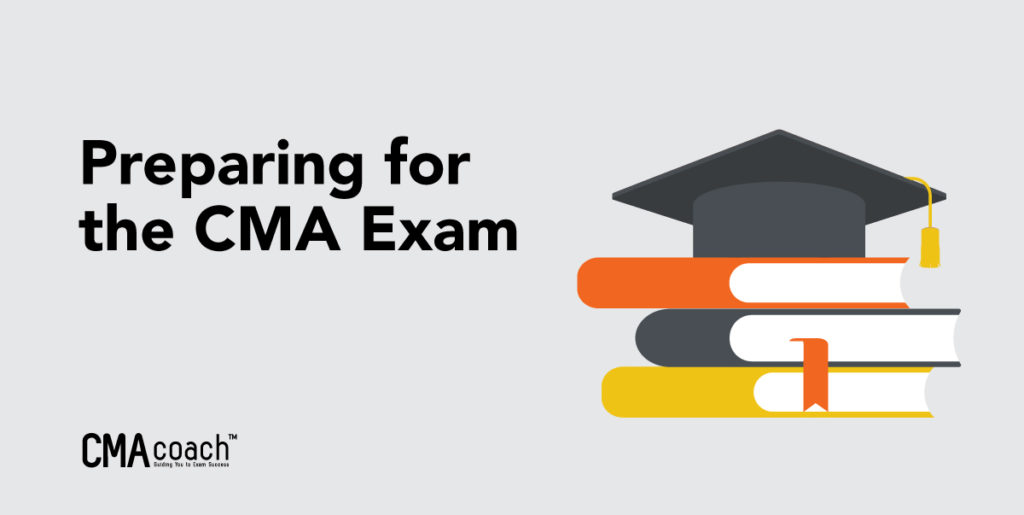
Once you’ve got your personalized study plan, your exam preparation process begins. This isn’t an endless process, but it is intense. It is absolutely vital that you set aside concentrated time for study.
Most people prepare for several weeks and make a sizable investment on a CMA review course, as well as tutoring or coaching. I recommend 16 weeks per part as a baseline for how long to study for the CMA exam.
All of this hard work should pay off in a passing score.
Here are a few of my top CMA exam study tips to help you start structuring your CMA exam prep:
- Create a study schedule. Many CMA review courses will have some framework for this. Whether you use a templated plan or make up your own, having a daily, weekly schedule for studying will keep you on track.
- Work methodically. Most times, it will help to take a practice CMA test or interact with real CMA exam questions to establish a baseline for your current knowledge. This functions as something of a starting line, helping you understand your areas of strength and weakness. Once you know that, you can create a pattern of working through the materials in a comprehensive way.
- Hone your test-taking skills. In addition to the vast amount of subject matter, having a strategy for the actual exam is crucial. You have a limited amount of time to answer a large number of questions. Going through extensive practice questions will help you get the format down. Then, you’ll want to drill these over and over to create strategies that you’ll use on test day.
- Get support materials. Not everyone is great at math or writing. If you are doing poorly in practice in one specific area, hire a CMA coach or tutor or get study materials to address those areas. Use additional Certified Management Accountant practice tests to make sure you’re ready. It’s a far bigger waste of money to fail the CMA exam than it is to make strategic planning and investments in your preparation.
FAQs
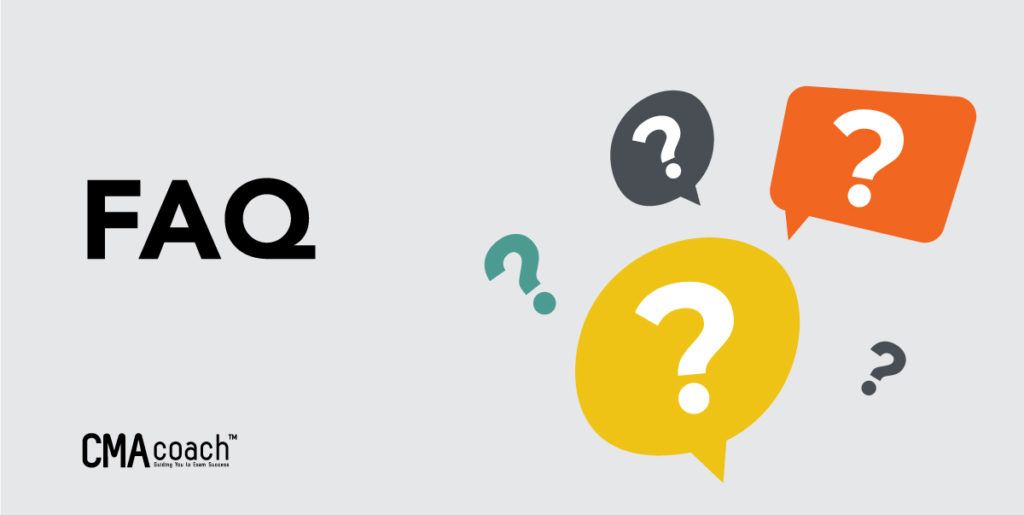
Our FAQs section answers the most common inquiries we hear from prospective CMA exam candidates, such as ‘How much does the CMA exam cost?’ and ‘How many questions are on the CMA exam?’.
How many questions are on the CMA exam?
The CMA has 200 multiple choice questions and four essay questions. These are broken up between the two parts of the CMA. Part 1 includes 100 multiple-choice questions and an essay portion consisting of two essay questions. Part 2 includes 100 multiple-choice questions and two essay questions (essay scenarios).
How much does it cost to take the CMA exam?
The CMA exam will cost about $1,080. This includes a $250 CMA registration fee and about $415 for each part of the test. You will also have to be a member of the IMA before you can take the CMA exam, which itself comes with membership fees.
How long is the CMA exam?
Each part of the CMA exam takes four hours. You will have three hours to complete 100 multiple choice questions and one hour in total to write the answers to two essay questions.
How long to study for the CMA exam?
I recommend that you study for 16 weeks total for each part of the CMA exam.
Have additional questions?
Drop them below and I will point you in the direction to find success on your journey to becoming a CMA!
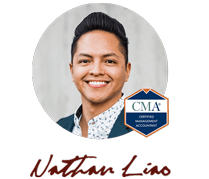
Hi, I’m Nathan Liao (aka the CMA Coach)! For the last 10 years, over 82,000 accounting and finance pros came knocking at my door seeking guidance and help. If you’re also aiming to conquer the CMA exam on your very first try—without wasting away time or money—you’ve found your ultimate guide. Dive in deeper to discover more about me and the dedicated team that powers CMA Exam Academy. Click here and let’s embark on this journey together!

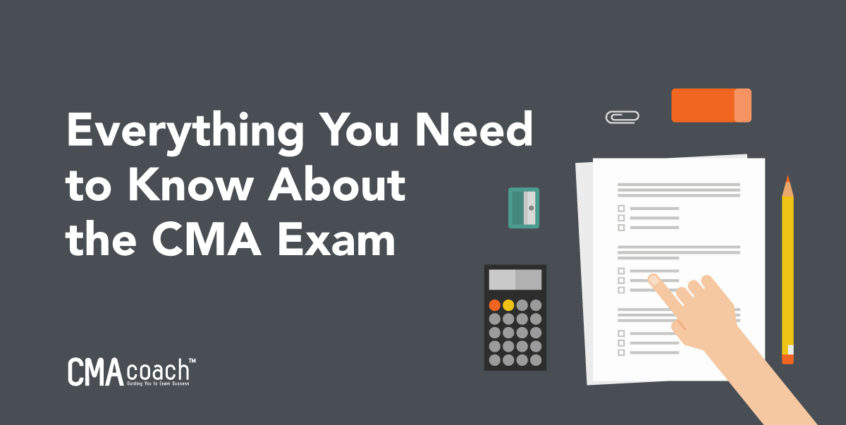
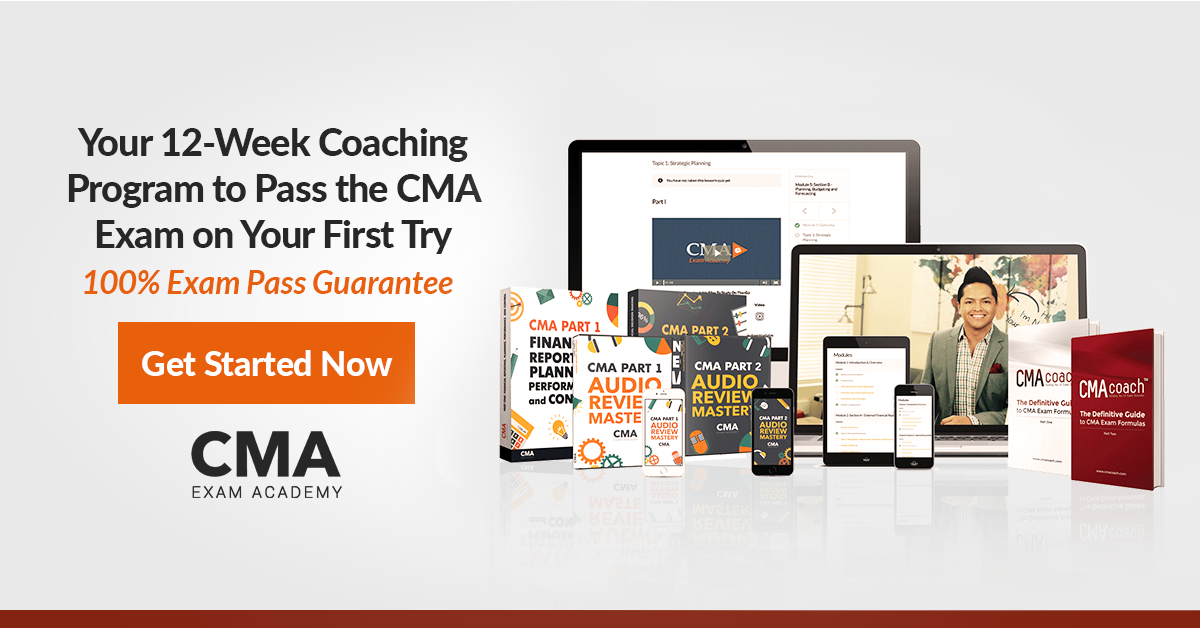
2 Comments on “Everything You Need to Know About the CMA Exam”
Hi Nathan,
I just purchased your book for part1 CMA.. what is the best plan to study it!
Thank you.
Hi Adly,
Awesome! I hope you’ll enjoy studying from our CMA review textbook.
You can find videos on how to create a study plan and the best study techniques for the CMA exam on YouTube channel. Check it out here.
If you have any other questions, please don’t hesitate to reach out.